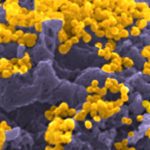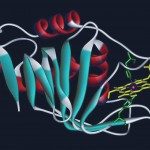The platform’s ambition is to develop serological or antigenic in vitro diagnostic test (IVD) as fast as possible, since 2020 for SARS-CoV-2, today for other viral, microbial or parasitic infectious agents, and tomorrow for global health applications on human, animal and environmental samples. The cross-disciplinary talents of our team weave together physics, chemistry, biology and engineering to imagine and design these diagnostic health tests of the future.
Our missions ?
- To remain responsive to health or environmental emergencies and studies, in collaboration with GOs, NGOs and hospitals, with point-of-need or very high throughput solutions for epidemiological or clinical studies
- Identify needs by listening to patients, their caregivers and experts, in collaboration with research and health institutions
- Develop innovations in collaboration with deeptech start-ups and industries, evaluate reagents, methods and technologies on reference samples, identify their fields of application, and validate their suitability for the needs of the healthcare ecosystem
- Support the development of innovations by the Institut Pasteur teams and its network on reagents, methods or technologies and ease their transfer in the health system and industry.
- Train the engineers of the future
Our resources ?
The platform has state-of-the-art equipment to :
- Transfer and replicate samples from tubes to plates, plates to plates and plates to chips
- Perform up to 2300 serological or antigenic ELISA or LuLISA tests per hour
- Quantify markers, reporters or reaction products by absorbance, fluorescence, luminescence or any spectral combination
- Design, develop, produce and evaluate rapid immunoassays on strips, slides, arrays or beads
- Design and produce antibodies coupled to luciferases, fluorescent proteins, peroxidases, Qdots, nanogold
- Manufacture demonstrators for the innovation of test devices and reading technologies
Our ambitions ?
- To select and produce specific molecular probes for any biomarker in 50 days that can be used in a high throughput test or a point-of-care test without animal immunization
- Develop robust and sensitive solutions to test the presence of several hundred different biomarkers with the same sample (allergies, cancers, infections and inflammation)
- Become an innovative and inspiring player in the diagnostic industry
- Become a resource for clinical, epidemiological and environmental studies and a force for action in pandemic surveillance
Our successes ?
- Goyard et al. A highly sensitive bioluminescent method for measuring allergen-specific IgE in microliter samples. Allergy. 2020. 75:2952-2956
- Le Vu et al. Prevalence of SARS-CoV-2 antibodies in France: results from nationwide serological surveillance. Nat Commun. 2021. 12:3025
- Roederer et al. Seroprevalence of SARS-CoV-2 IgG antibodies and risk factors of exposure in Paris: a study among homeless and precariously housed people. The lancet Public Health e202-e209
- Anna et al. High throughput serology and pseudo-neutralization tests reveal high prevalence but short live response to SARS-CoV-2 infection in a large healthy worker cohort in May-June 2020 in Paris. Eur J Immunol. 2021. 51: 180–190
Our internship offers ?
- Manufacturing : Prototyping a standalone instant test terminal during a 6 months internship in last year of engineering school in electrical engineering, mechanical engineering, embedded electronics, robotics
- Manufacturing : Prototyping a mobile test strip reader during a 6 months internship in the last year of engineering school in electrical engineering, mechanical engineering, embedded electronics, robotics
- Manufacturing : prototyping an automated system for loading tips with antibody-functionalized resins for high performance separation of biomarkers for mass-spectrometry quantitfication from body fluids during a 6 months internship in the last year of engineering school in robotics or biotechnology
- Process : Development of a therapeutic monitoring test on a drop of dried blood during a 6 months internship in the last year of engineering school in biotechnology
- Big data/AI : Evaluation of the severity of allergic reactions by deep learning during a 6 months internship in the last year of a general engineering school with a focus on mathematics and/or computer science
Contact us ?
Email : diag@pasteur.fr





















